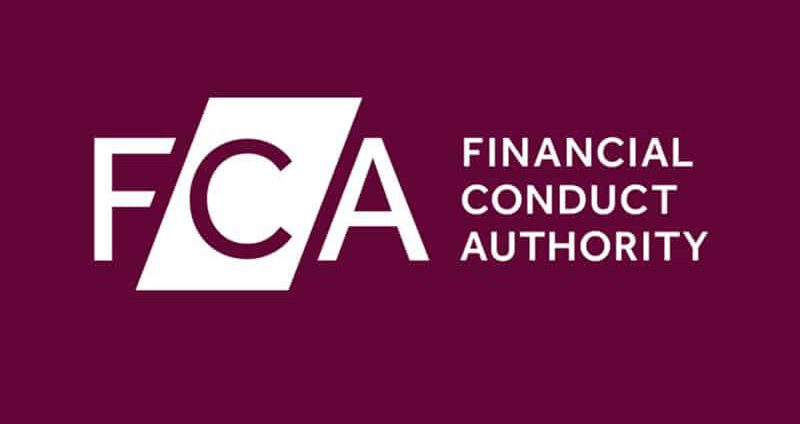Now into the second year of its 3-year strategy, the FCA has outlined some key achievements and milestones from the last 12 months, including the game changing introduction of the Consumer Duty, which came into force on 31 July 2023.
Nikhil Rathi, Chief Executive of the FCA, said: ‘The financial services sector is vital to the UK economy, and we are committed to supporting its role in long-term economic growth. At the same time, our commitment to reducing and preventing harm remains unwavering, and the introduction of the Consumer Duty reaffirms this.
From the digital frontiers where new opportunities and risks are fast emerging, to the competitiveness of UK markets, we are focused on staying ahead and have laid out proposals for far-reaching reforms across our remit.
We know at the FCA our role is not just about regulating financial services, it’s about safeguarding futures, supporting innovation and informed risk-taking and maintaining a resilient financial ecosystem.’
Reducing and preventing serious harm
Consumer Duty and help for struggling consumers
The Consumer Duty marks a major shift for both firms and consumers. The Duty sets higher and clearer standards of consumer protection across financial services and requires firms to put their customers’ needs first. Firms have already made changes to savings rates and fees as a result of the Duty.
The FCA took action against insurers providing Guaranteed Asset Protection (GAP) insurance after data revealed that these products were providing poor value to customers. Firms were told to take immediate action to prove customers were getting a fair deal, or face further action under the Consumer Duty.
In July, the FCA also published final guidance for insurance firms on support they should offer customers in financial difficulty, such as forbearance, waiving fees and excesses. The FCA continues to monitor how firms are implementing new rules on insurance pricing.
In December, the FCA shared its findings with firms following a multi-firm review into the retail banking sector. The review highlighted areas of good practice, including firms’ approaches to identifying customer harm and remediation planning.
The FCA banned certain providers of debt advice from receiving referral fees from debt solution providers. The ban should save consumers struggling with debt thousands of pounds in unnecessary fees and ensure they receive better quality advice. It has put a stop to the business model which incentivises debt packagers to recommend certain options that make them more money, rather than what’s in the customer’s best interest.
The FCA has worked with almost 100 lenders on how they treat mortgage and consumer credit borrowers in financial difficulty and has sought significant improvements from many of them. Through this work, it has secured up to £54.4m of redress for over 228,000 customers as of December 2023. In the summer it also amended its rules to facilitate the Government’s Mortgage Charter.
Tackling online harms
In September 2023, the FCA introduced additional screening checks for firms approving marketing for unregulated firms and new financial promotions rules for cryptoassets followed in October. These measures have been designed to help people make informed decisions about where they put their money.
In May, the FCA launched an event as part of its InvestSmart campaign – Swipe Left, Invest Right aimed at young investors, after research showed they were more likely to have long-term goals in mind when dating than when investing. The panel featured Celebs Go Dating star, Anna Williamson. Social media content, containing InvestSmart campaign messaging, posted as part of this activation reached over 40,000 people.
Following the increase in ‘finfluencers’ promoting financial products to consumers on social media, in July the FCA launched a consultation on new guidance for firms to ensure that financial promotions made online are fair, clear and not misleading.
The FCA has also worked with external partners to make policy and legislative changes, including contributing to the online safety bill that could see uploaded harmful content removed from online platforms. As of December 2023, the FCA has removed over 10,000 potentially misleading adverts and sent out 2,243 warnings about unauthorised firms and individuals.
Between January and October 2023, the FCA cancelled 1,266 firms that failed to meet its minimum standards for authorisation. This is double the number of firms cancelled in the previous year. Following enforcement investigations, the regulator imposed fines totalling £52,802,900 this year. In 2023, the FCA published details of the enforcement action it has taken against 14 firms and individuals in relation to the British Steel Pension Scheme, with sanctions totalling £5.4m.
This is made up of financial penalties of £3.9m and payments to the Financial Services Compensation Scheme totalling £1.5m. Following FCA prosecutions, 7 people have been convicted in the criminal courts for fraud or related offences, and 6 received prison sentences ranging from 2.5 to 9.5 years.
The FCA used its powers under Anti-Money Laundering Regulations to disrupt 26 machines across 34 locations that were suspected of operating as unlawful crypto ATMs.
In October 2023, as part of the Anti-Money Laundering supervision of over 17,000 firms, the FCA fined ADM Investor Services International Limited over £6m for inadequate AML systems and controls. This followed fines totalling over £11m imposed on Guaranty Trust Bank (UK) Limited and Al Rayan Bank Plc in January 2023.
Setting higher standards
In April 2023, the FCA evaluated the rules it introduced to improve the overdraft market and found that people across the UK had saved nearly £1 billion from two separate measures.
The FCA took action to tackle low rates paid on savings accounts with a 14-point action plan in July. In December it announced it has seen progress in the speed and size of interest rate changes for savers, and improvements in cash ISA transfer performance in the market for people across the UK since the initial announcement.
On 7 December 2023, the FCA set out its new rules to maintain access to cash in an increasingly digital world. The proposals set out how banks and building societies will need to assess and fill gaps in local cash provision, ensuring people can continue to access cash if they need it.
In September, the FCA together with the Prudential Regulation Authority announced a consultation on proposals to introduce a new regulatory framework on Diversity and Inclusion in the financial sector.
Promoting competition and positive change
The FCA helped deliver a new framework for the future of regulation, implementing a new secondary objective to promote competitiveness and long-term growth. A panel to scrutinise its cost-benefit analyses is being recruited and the FCA is working with new parliamentary committees on enhanced accountability mechanisms to reflect its greater policy making powers following the UK’s departure from the European Union. As part of that, an ambitious programme has also been announced to review rules to ensure they remain right for the UK market.
As part of its continuing work to boost growth and competitiveness in the UK, the FCA has been strengthening the UK’s position in global wholesale markets by actively shaping domestic and international work on sustainability disclosures. In November 2023, the FCA introduced new Sustainable Disclosure Requirements and investment labels and the anti-greenwashing rule. These regulatory initiatives are intended to improve trust and consumer choice in these products.
In December, the FCA set out proposals to update the listing regime with the most far-reaching reforms for decades to make listing more accessible, effective and competitive. Following initial measures set out in May, the regulator sought extensive feedback on how to encourage a greater range of companies to list and grow in the UK. It also launched the Authorisations PASS service, to support overseas firms looking to expand in the UK.
This year the FCA has also taken action under its competition powers to protect UK consumers and markets, by issuing fines to three money transfer firms in Glasgow. The firms were found to have coordinated on certain exchange rates offered to customers, and fixed transaction fees. It has also published proposals to help people ensure their credit files better reflect their financial circumstances – through the Credit Information Market Study – and launched the Wholesale Data Market Study to investigate potential competition problems in the markets for benchmarks, credit ratings data and market data vendor services.
In October, the FCA published a discussion paper on AI to help assess the benefits and risks of AI to consumers and how it can best support its safe and responsible adoption.






